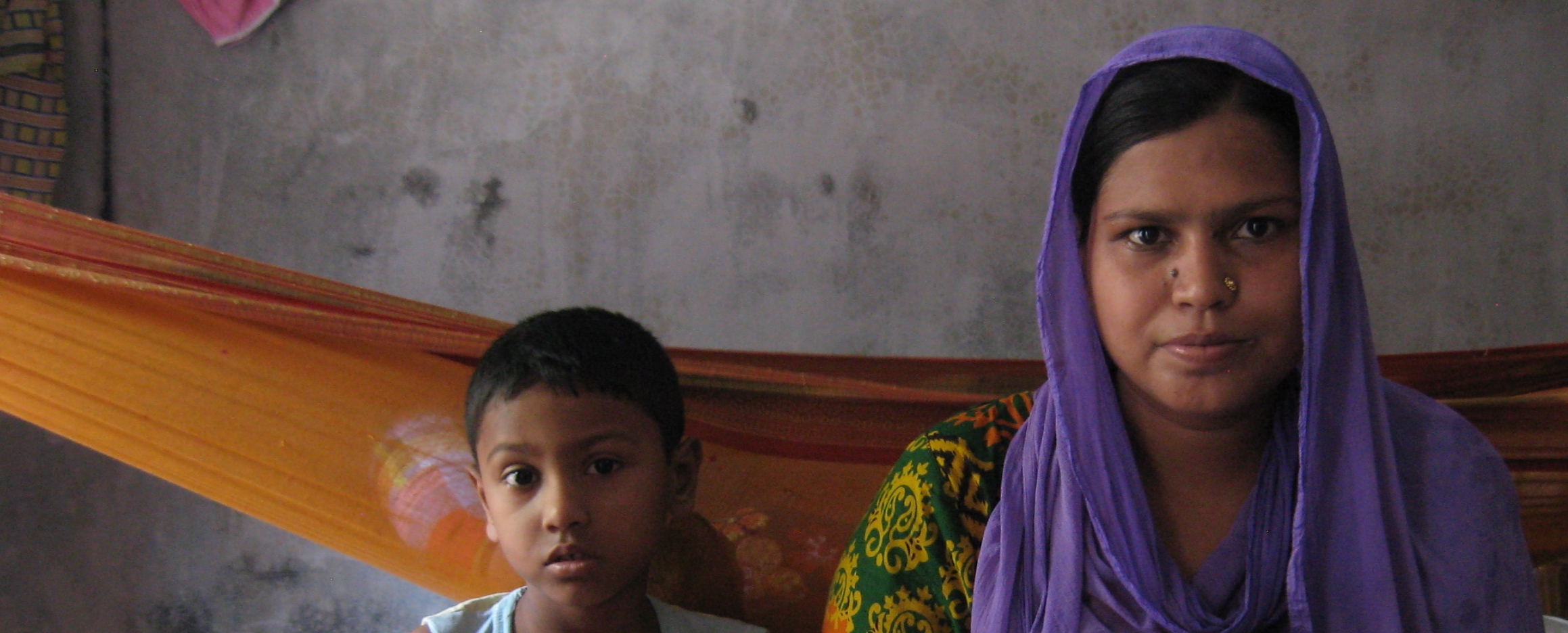
Shamima cannot afford health care. Not even at the government hospitals. Like most members of the minority Urdu-speaking community in Khulna, in southwest Bangladesh, she and her husband do not have enough to meet their basic needs. With his income as an autorickshaw driver, they can only afford to rent a one-room house.
The counselor’s office provides people who are living in poverty, like Shamima, with health cards that give them a discounted rate for medication and maternity services. The problem is, many members of the Urdu-speaking community, whose Bangladeshi citizenship was confirmed in a 2008 High Court decision, are still not aware of their rights and entitlements. Others face discrimination from officials when they present their legal identity documents to apply.
One day, during an outreach activity, Naaj, a Namati-Council of Minorities paralegal, met Shamima and talked to her about her citizenship rights and how legal identity documents can help her access basic services.
As Shamima was pregnant, expecting her second child, Naaj asked her if she was going for regular check-ups. “No,” Shamima replied. “I’m not going because I would have to pay.” Naaj then told her about her right to a health card and the discounts she could get with it. She carefully explained the process and requirements for getting the card from her local commissioner’s office, but Shamima was hesitant. She had never heard of this card and had little experience with such bureaucratic processes. Naaj offered to accompany her. The next day, they went together to apply.
The office was extremely crowded, but Naaj was able to introduce Shamima to the commissioner. Shamima explained her situation, showed a photocopy of her own birth certificate, and successfully received the health card.
With the card, Shamima was able to access a variety of tests and other services at the urban health clinic to ensure she had a healthy pregnancy. She was also able to afford to deliver her baby, Yafin, at the clinic. If she had not had the 65% discount, she would have had given birth at home – a great risk for both mother and child.
Shamima says she learned a lot through the process. “Now I know that if you need a health card, you can approach to the commissioner’s office, or, if you need, you can contact the paralegal.” In fact, Shamima is currently working with Naaj once more. This time, it’s to apply for a birth certificate for her five-year-old son. With her newfound knowledge she knows that with that in hand, she will be able to enroll him in school.
Written by Laura Goodwin and Mustafa Mahmoud